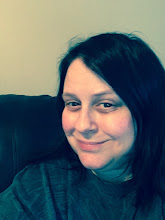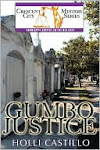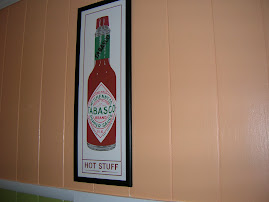A Rose by any other name would smell as sweet. The famous phrase from Romeo and Juliet, where the two star-crossed lovers discuss whether it makes a difference that Juliet is a Capulet and Romeo is a Montague. They seem to think it doesn't. We all know that it did, or they wouldn't both be dead by the end of the play. That Shakespeare may have been on to something.
Turn to the big debates over the distinctions between traditional houses, small presses, indie publishers, self-publishing, vanity presses, e-publishing, and print on demand, or POD. Ultimately, does the public care which category a book falls into before they decide to make a purchase? And do readers even know the distinction?
For a brief explanation- traditional houses are generally those big New York publishers who rarely take on new clients, but publish and promote writers such as James Patterson and Stephen King.
Small presses, formerly known as independent presses, are smaller publishers who perform much in the same way as the larger houses in that they do not charge authors any types of fees to be published, and take on all the expense of the book publication, such as printing costs and cover art.
The distinction between big houses and small presses are: big houses are able to get books into brick-and-mortar book stores easier, and are able to spend big bucks on the promotion of big writers. Small houses tend to use print on demand, which simply means the books are not printed until someone orders them. Small houses may or may not offer advances. Both large and small presses should pay quarterly earnings to its writers, but every contract is different. Both do have contracts.
The title "indie publishers" which used to represent the small houses now is used almost exclusively for self-published. Sometimes, the companies that offer these services call themselves a name that sounds like a traditional or small press. The big distinction here is that the companies that self-publish do not edit the works they publish, but basically provide a means for the writer to get his or her book in print, as it is. Promotion is left entirely to the writer. Vanity presses are basically a method of self-publishing for the author, but frequently charge extremely high fees.
E-publishing is electronic publishing. It is done by most if not all publishers. There is a huge market for e-books with Kindle and Nook, and probably the IPAD by now. Books can also be downloaded onto computers or smart phones. The benefit to the buyers is that e-book are generally cheaper, and more portable. An avid reader can save as many books as his device has memory.
Print on demand again is not a form of actual publishing, but a method to print hard copies of books. It is more ecologically friendly and green than printing vast numbers of books that may not get sold.
So, does it really matter which of the categories a book falls into? Does anyone care if a book has a big New York publisher behind it, a smaller press, or if the writer published the novel on his own?
As a writer with a "small house", I expect my opinion will be different than someone who self-published, or a writer with a traditional, big New York publisher. The truth is that writers are going to side with the method in which they were published. It's the nature of the beast. Most of us need reinforcement as writers that we are actually "real" writers, so our way has got to be the best way.
But turn to my sister, who is "only" a reader, you know, one of those people who actually buys lots of books just to read them and entertain herself. She doesn't care if it's Doubleday, Bantam, Fly-by-Night, Small Press U.S.A., or Look, Mom, No Hands, who published the book. She cares about whether the book has a compelling story that holds her interest, good characters, a good and satisfying ending, and maybe on occasion, price.
But those things may be affected by how the book was published. While I have seen errors in books put out by the New York publishers, those companies do have the wherewithal to do a whole lot of editing if a book needs it. Does this mean their book will be better than a self-published book that is professionally edited? Probably not. It does mean that if Stephen King has an off day of writing, nobody will be the wiser because his errors will be caught by an editor and fixed before it gets in print.
Small presses may have in-house editors, or they may expect their writers to have their work edited by an outside source, such as a writing group, a college professor, a paid editor or the like. Small presses may also have people who perform more than one duty for the company who may assist with editing. They generally will not publish books full of errors because those books tend to not sell well, and small presses need to make as much as they can off each author and each book. Small presses tend to keep their books available longer, because by using POD they didn't waste a whole bunch of money printing books no one will buy.
As far as self-publishing, the degree of editing depends entirely on the writer. Some writers may self-edit their manuscripts to the point of near perfection. Others may pay a professional editor. Still some may not do any of the above and end up publishing crap. Hey, sometimes crap sells.
In the end, writers own prejudices will decide what books they buy, and whether it makes a difference to them how the book was birthed. But for the general reading public, it probably isn't going to matter how the book saw the light of day. If a reader buys any book that turns out to be full of typos, plot holes, or other errors, regardless of how it came to be published, chances are the reader won't buy a second book by that author. And that will ultimately be what causes the downfall of that writer.
So does a rose by any other name smell as sweet? All other things being equal, probably. But a rose that hasn't been properly cared for while in the ground won't bloom the same way as one that has, and almost certainly won't smell the same. (In case you missed it, the analogy was that poorly edited manuscripts stink. Did that come across or does this post need more editing?)
Wednesday, August 15, 2012
Subscribe to:
Post Comments (Atom)









8 comments:
I agree with everything you said and to add a bit, the New York publishers do a lot more for their authors--not even the biggest names, but those they know will sell. Recently, Simon and Schuster sent 4 authors on a bus tour from one bookstore to another in the eastern portion of the U.S. M. J. Rose and William Kent Krueger were two of the authors, the other a Swedish author, and a another male who I can't remember his name.
Amazon also pushes those authors they know will sell--but recently I saw Holli Castillo's book linked with some big name author's books. So you never know!
Marilyn
Amazon has been a saving grace for most of us, I think. I don't think I could handle the stress of being with a big name like Simon and Schuster. I guess it would be worth it if I could quit my day job, but I know small houses have more patience. I have heard stories from writers with big houses whose books were available for only a short time, didn't immediately fly off the shelves and then got pulled. I would hate for it to end before it really even began.
Excellent discussion, Holli.
Billie Johnson
Oak Tree Press
Great discussion Holli. I like the way you've dissected the industry here and without anger. So often, people feel that they've been burned in one way or another and will be kind of vindictive. This post is great.
John, I have found writers really have strong opinions about publishing, almost always believing the method they chose for publication has to be the best. Again, I think a lot of that is our writer's egos, because we need reinforcement. I can admit it. I was rejected over 40 times before OTP signed me. Of course, I edited my MS a whole lot between those two occurrences. I don't harbor ill feeling for the big publishers or agents who rejected me, because I do believe everything happens for a reason (that, and they were right to reject me at that point in my MS.)
Readers typically do not have ANY idea who publishes the books they read. They're grabbed by back cover copy or by the first few paragraphs they've read (if they're holding a physical book, that could be from any random page, or if they're looking at a digital sample, that will probably be the first chapter or so). They might remember an author's name--but my husband can't even remember the authors/titles of the books he's devoured, so you can't even count on THAT. They go by price FAR more than by publisher or format; if a book costs more than they subjectively think they can afford, it means they will probably pass. Reviews also have some effect, but not as much (IMHO) as we authors fear they do.
The other day a friend of mine (a friend whom I've urged to enter the new OTP memoir contest with his memoir about working in Vegas in the 50s/60s playing brass instruments behind Vic Damone and Mel Torme and traveling with the Bobby Sherwood big band) asked me whether a book that's a trade paperback would be an instant "signal to readers that it was self-published and thus dreck." I replied that not only are OTP books trade softcover format, but also John Grisham's books and Stephen King's (look in the airport bookstore or at WallyWorld! There they are, alongside TWILIGHT and FIFTY SHADES OF BLAH, in trade paper!) I told him that readers do not attach much significance to format, except that they feel hardcovers are too pricey and too tough to store. Some readers want only smaller books that are easy to store, and some only purchase e-books now. It varies. But you can't tar an entire group of books with the "dreck" brush just because a goodly number of self-pubbed books aren't ready for prime time (and could be squeezed out for unnecessary commas, like oil out of Elvis's hairbrush.)
I would love to be with Simon and Schuster. I would also like to fly through the air like Superman. Considering the type of book I write (not "the world is coming to an end and only the special-born person can save it," but small personal stories that show something happening to a person who has to grow and change in order to cope with the new world he or she now lives in--books that explore the eternal human condition as well as entertaining and informing the reader), both of those things are pretty unlikely. A small press is the perfect answer to my prayers. You are no longer out there alone battling the windmills. You have a support team to help you navigate the mess of marketing and selling books.
Right now, things are tough all over because the Old World is going away (brick-and-mortar stores, paper books as opposed to e-books, book tours and signings) and the New World Order is still being constructed. Someday soon it will sort itself out. Until then, we strive on, boats against the current, driven back ceaselessly into the eternal past. Or we go online and surf for a while to escape into a better world!
Oh--also, I've noticed more and more of the books out from the Big Six suffer from many editing problems: omitted words, howlers ("The yellow house turned the corner"), misplaced modifiers, misspellings or misused words (such as the wrong word entirely), problems with punctuation, and the like. Copyeditors have been let go because of tightened belts. No one seems to know or care, though.
My books don't have the howlers and mistakes of the Big Six books, and they are always properly punctuated, but they don't sell as well as malpunctuated erotic Twilight fanfiction. I can only conclude that most readers don't know and simply don't care about grammar or punctuation as long as they can puzzle out a meaning that appeals to them from a particular text. They have been conditioned to read for story only and for character secondarily (look at the fans of the sparkly vampire Edward or the intrepid English schoolboy Harry), and don't really worry about whether they're reading cadenced prose or cobbled-together awkward stuff. I'll bet they wouldn't know cadenced prose if they were hit on the head by a brickload of it--the way they are when they are made to read Shakespeare, Milton, and Francis Scott Key Fitzgerald in school (and HATE IT ALL because "it's boring" and "no car crashes.")
But cadenced prose is of the old world. Today's world is sound bites and talking points and bullet points. I am a fossil. I know it, though, and I'm going to enjoy it all the way. Turtles all the way down!
Holli, I also agree with everything you said. And with everyone talking about being "green" these days, you'd think they'd jump right on the bandwagon for ebooks and POD books. There is some snobbery in the writing world, but I figure if a book is good, then I don't care who published it.
Post a Comment